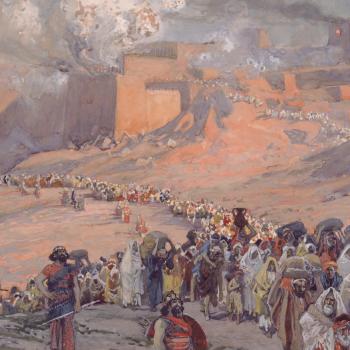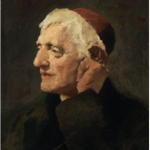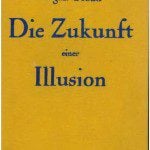
Many years ago, my good friend Lou Midgley and I drove up to the Salt Lake Valley one Sunday night to spend the evening at an evangelical Protestant church. The good folks there were showing an anti-Mormon film of some kind, and Lou and I wanted to see it. We hoped simply to sit quietly in the back and watch.
However, we had committed an elementary, naïve, and obvious mistake: We went to the event dressed in conventional Latter-day Saint church clothes — with white shirts and ties, no less. We might as well have been carrying flashing neon copies of the Book of Mormon. Nobody else in the place, not even among the women, was wearing either a white shirt or a tie. None were dressed in what most Latter-day Saints would recognize as “Sunday best.” All were clad in pretty casual attire.
After the showing of the film, which, to be honest, I can’t even remember, we were swarmed by aggressive evangelicals trying to save our souls. Well, actually, I don’t know that saving our souls was high on their list of priorities; they were quite aggressive and not especially nice. (It was something of a best-practices demonstration on how not to save souls.)
They deployed a number of pretty standard evangelical anti-Mormon arguments, and the conversation, such as it was, was going nowhere in particular. If we responded to one critique, another was immediately offered in its stead.
One of the most assertive of our hosts decided to concentrate on the doctrine of the Trinity. We weren’t Christians, he said, because we didn’t believe in biblical trinitarianism. (For some of my thinking on the subject of biblical trinitarianism, which may perhaps surprise a few, see “Notes on Mormonism and the Trinity.”) He unleashed a torrent of proof texts and assertions and condemnations that scarcely permitted time for response.
Eventually, I managed to get in an edgewise word. So as to slow him down a bit, I asked him exactly what he understood by “the Trinity.” He explained to me that there is only one God, that God is one being who manifests himself in different modes or aspects, sometimes as Father and sometimes as Son and sometimes as Holy Spirit.
I responded that, yes, by the standard of mainstream traditional Christianity, my Latter-day Saint view of the Godhead is indeed heretical. I think that I remember him smiling in triumph. But then I pointed out that, again by the standard of mainstream traditional Christianity, he too was a heretic. I told him that his view was an expression of Sabellianism, or what is sometimes called “modalistic monarchianism.” Sabellianism was a third-century heresy that denied the existence of real, distinct persons within the Trinity. It viewed the one God as, if I may, something of an actor, one who simply puts on this or that mask, according to whatever would serve at the time. Sabellianism was rejected by most Christians anciently and is still considered a false doctrine.
He protested against my description of what he had said, claiming that his was true, biblical, trinitarianism.
“Actually,” said one of the others who were standing nearby, “I don’t think you’re right. Maybe you need to talk with Pastor.”
And then others joined in. Eventually with considerable animation. While they were going back and forth — I’m not making this up, although it seems almost like something in a slapstick comedy — Lou and I slipped out. Unnoticed, so far as I could tell.
I hadn’t thought about that experience for a long, long time, until I saw this little item, dated 30 March 2025, from the Christian Post: “Most American Christians don’t believe in the Trinity: Survey.”
Which reminds me, in turn, of a recent exchange between Utah’s Senator John Curtis and the former governor of Arkansas, the Baptist pastor Mike Huckabee. You may or may not recall Mr. Huckabee’s fairly ham-handed effort to weaponize anti-Mormonism against Mitt Romney during the 2008 Republican presidential primaries. That constitutes the background for Senator Curtis’s question: “Sen. John Curtis asks Mike Huckabee to clarify feelings about Church of Jesus Christ in Senate hearing: Huckabee was nominated to be the U.S. ambassador to Israel”
I’ve seen one or two responses to what Mr. Huckabee had to say that seemed satisfied by his reply. I, however, was not remotely satisfied. Nor, I’m gratified to say, was Hugh Hewitt, the conservative radio talk show host, lawyer, and academic (and Catholic): “Mormon Memory Lane – Being Better”
And, while I’m on the subject of Mike Huckabee, I want to share this article by Fares Abraham, a Palestinian Christian pastor. (I suspect that more than a few people out there — though certainly none among the esteemed readers of this blog! — would be surprised to learn that there are such creatures as Palestinian Christians.) His is a voice that, I think, many Americans need to hear: “Charlie Kirk doesn’t feel safe in Bethlehem. It’s his worldview that’s to blame, not my city. — To Charlie Kirk, Mike Huckabee and every Christian taught to fear my people and my city — come and see.”













